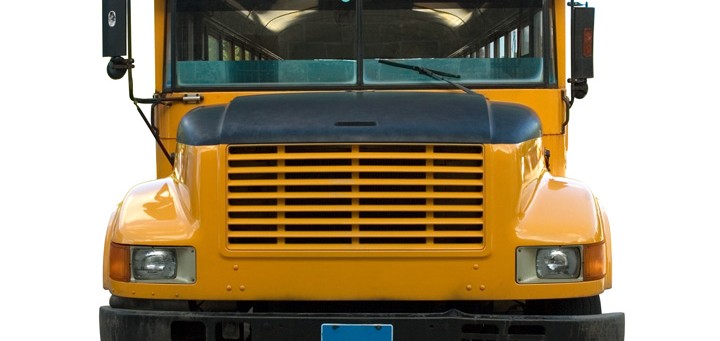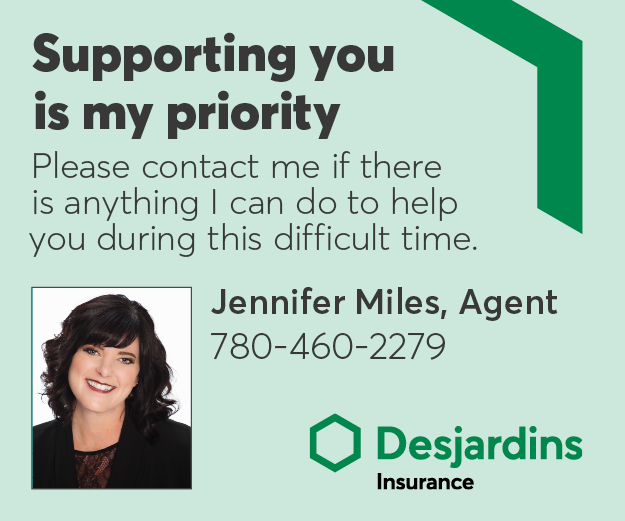
Conversations
HOLD-OUTS & HANG- UPS: Home-Schooling in Alberta
BY NJ BROWN
December, 2015
| September always seems to come upon us in a flash. One moment we’re sipping cold lemonade in the shade, and the next the new school year is upon us. For some children, this means attending a physical school. For others, environments don’t change, but schedules shift to accommodate home-schooling. |
There’s no doubt that we all want the best education possible for our children. But how to best provide that can become a contentious issue given the sheer number of choices available. And there is perhaps no bigger divide than that between philosophies that champion public education on one hand and home-schooling on the other.
Most of us have a pretty good understanding of how public schools operate. The topic gets tons of media play, and most of us have either attended a public school ourselves or have had people we know share their first-hand experiences with us. Home-schooling, however, isn’t as readily understood. Even as the number of home-schooling families in Canada increases, objections to or defenses for it often rely on past stereotypes rather than current realities.
What better time to learn more about home-schooling and explore its perceived pros and cons? After all, the most profitable discussions begin with understanding the issues. So let’s get the conversation started.
The Evolution of Home-schooling
Contrary to popular perception, home- schooling actually predates public education. In fact, it was common practice across North America until education became regulated and funded in the 1870s. Prior to that, physical schools were a luxury only the wealthiest communities could afford. But with the arrival of compulsory attendance and teaching as a professional occupation, brick and mortar schools quickly became the norm rather than the exception. So began the inevitable decline of home-schooling as originally conceived and practiced.
And then came the 1960s.
Another common misconception about home-schooling is that it was revived by the socially conservative and often deeply religious Right (the demographic most likely to home-school now). Not true. It was actually the counterculture Left that gave it new life. In the 1960s, prayer and religious instruction in public schools were not only sanctioned, but almost a given, and the fundamental values and beliefs of the Christian community were pretty much baked into the curriculum. Rather, it was the hippies, the New Agers, the homesteaders, who felt disenfranchised and sought to educate their children from a perspective different than that offered by public schools. So began the home-schooling revival.
The 1980s saw a further shift, when efforts to separate religion and education ramped up. Now it was the religious Right that saw itself as marginalized. The Fraser Institute’s “Home Schooling: From the Extreme to the Mainstream” reports that “By the mid-1980s…most home schooling parents could be accurately described as part of the Christian Right.” But that, too, continues to shift as the reasons parents choose home-schooling become ever more diverse and plentiful: safety, bullying, overcrowding, disabilities, remote locations, quality of education, unaffordability of private schooling, scheduling conflicts—and the list goes on. According to the Alberta Education Association, “home education (in Alberta) grew by over 8% from 2013/14 to the current school year (2014/15).” Best estimates put the number of students currently home-schooled in Alberta somewhere around 10 thousand. And if this upward trend continues, that number is bound to increase substantially in years to come.
The arrival of the Internet also impacted this growth. As ease of access to resources increased, the prospect of home-schooling became less daunting to those who might have avoided it when Canada Post was still among the most accessible tools home-schoolers had at their disposal. Indeed, the very face of home-schooling has changed in the technological age. Options have expanded, and strategies are far more varied. Yet, even as these make home-schooling more accessible and attractive, it also complicates efforts to understand it.
So What Is Home-schooling?
The term “home-schooling” has become somewhat of a catch-all that fails to conjure up all the existent variations. Perhaps that’s one of the reasons Alberta Education distinguishes between “home-schooling,” which refers to place (the home) and “home education,” which refers to a particular kind of home-schooling in which a child’s education is both designed and delivered by parents. This may seem like the obvious application of home-schooling on the face of things, but a closer look reveals that many families choose to home-school while still adhering to Alberta curriculum. In this scenario, parents don’t act as teachers. Rather, organizations such as Alberta Distance Learning Centre (ADLC) supply (either online or via exchange of print materials) both Alberta curriculum approved courses and certified teachers who provide instruction. Credits for completed courses appear on transcripts just as they do with “regular” schools (unlike the parent-as-teacher option).
So it’s possible to provide a home-school education that’s academically equivalent to a public-school education. But the possibilities don’t end there: in a “blended” education, home-schooling parents may, for example, teach English themselves and have ADLC provide course materials and instruction for math. But wait: there’s more.
In Alberta, “home-schooling” also encompasses “congregated sites,” most often found in insular communities, such as Hutterite colonies, where Alberta curriculum doesn’t reflect community values and beliefs. In such cases, home-schooled children gather in one place—a church or community hall, for example—and receive their education collectively, often from someone other than a certified teacher. Perhaps the most controversial of all forms of home-schooling, congregated sites straddle a line and stretch definitions even further. Advocates of congregated sites maintain that restricting home-schooled students from being educated by anyone other than their parents would also restrict them from learning important and necessary skills (carpentry, for example). Opponents maintain, just as fiercely, that congregated sites are really just public schools that have found a way to get around government-mandated curriculum. Which brings us to another question: where’s the government in all of this?
Government Involvement
Home-schooling is legal across Canada, but regulations and funding vary from province to province. So much so that organizations such as the Home School Legal Defense Association exist, in part, to help parents negotiate the rules particular to their location. Here in Alberta, all forms of home-schooling are supported and funded, at least in part, by the provincial government. But it’s not a given that it will remain that way.
The recent government shakeup had the entire educational community holding its collective breath as we awaited news of where the new NDP government would land on education. Understandable given the previous PC government’s attempt to freeze both funding and capital reserves in education. Even more understandable for home-schoolers concerned that the new government might follow the lead of NDP governments in other provinces, such as Quebec, where home-schooling isn’t funded. As it turned out, the new government not only unfroze the frozen, but also announced, shortly after being elected, that no changes would be made to current education regulations. At least for now.
Alberta is arguably the most home-schooling friendly province, but that doesn’t mean that home-schooling here is unregulated. Home-schoolers are required to register with a school board and must either adhere to Alberta curriculum or develop their own education plan, which is subject to approval by the board they’ve registered with. Those who develop their own plans are also assessed twice a year at minimum by home-education facilitators whose job it is to ensure children are achieving the goals identified in the plan.
So now we know about the ins and outs of home-schooling. But what is it that sparks the ongoing controversy between supporters and detractors?
What’s the Problem?
The answer to that question depends on who you ask. Perhaps the stickiest part of the whole debate is that both sides offer valid and compelling arguments, especially if we consider not just the content of those arguments but their philosophical underpinnings as well.
For supporters of home-schooling, parental rights, individual freedoms and freedom of religion come heavily into play. For this group, the problem is not with home-schooling, but with the public school system. For some, the lack of religious instruction and what might be considered Leftist indoctrination are of major concern. After all, if parents are responsible for their children’s well-being, they themselves must have the freedom to define what that means. And that becomes an impossible task when there’s conflict between what children are taught in school and what they’re taught at home.
Of course, there are many other reasons parents choose home-schooling. But whatever those reasons, parental rights and individual freedoms still provide the foundation that supports them. If, for instance, a child is bullied in a public school, does the parent not have the right to provide a safe environment? If a child is spending an unreasonable amount of time on a school bus, shouldn’t parents address the problem as they see fit? If a child has a disability that parents believe isn’t being properly addressed in the public school system, aren’t they obligated to meet the child’s needs in a different way? If class sizes are too large because of overcrowding, doesn’t home-schooling actually help alleviate that? If a child is at risk of being “lost” in a public school, isn’t he or she more likely to thrive with one-on-one instruction? If a child is being negatively impacted by peer pressure, why shouldn’t parents take whatever steps they believe necessary to minimize that influence? If the parent-child bond is a primary influence on and indictor of future success, then doesn’t it make sense for parents to be as involved as possible?
Then there’s this: who knows a child better than his or her parents? If the answer is “no one,” then who is better equipped to identify and meet that child’s educational needs?
In arguments against home-schooling, underlying philosophies include those of societal goods and inclusion. It’s not so much that detractors don’t recognize or acknowledge the problems with our public school system, it’s more a question of how we can fix them if we all keep pulling out. As the number of students attending public schools decreases, so does funding, which could potentially hamper the education of those children for whom home-schooling isn’t an option. And just as the religious Right may see public education as indoctrination to the Left, those on the left launch the same argument in the other direction: is religious instruction a matter of freedom, or is it simply a guise for indoctrination to the Right? If education becomes an activity that limits exposure to alternate beliefs and ways of life, how do we ensure that children learn values like tolerance and critical thinking? If children don’t receive the same education across the board, how can we fairly determine what skills and knowledge should predicate acceptance into post-secondary or the workplace? If the current trend, in which it’s usually mothers who remain at home and deliver home-schooling, holds, do we stand a chance of successfully tackling issues like wage disparity and representation of women in the workplace and government?
Then there’s this: if we consider parents to be the best providers of children’s education, then what’s the point of training teachers? What’s the point of public education at all?
It’s a complicated issue indeed, especially given that the values and beliefs of those on either side are unlikely to change. And that’s as it should be; having the right to those views is part of what democracy is all about. The difficulty with arguments arising from those views, however, is that there’s almost always a flipside. But recognizing that may just be the best place to begin as we search for common ground. The more successful we are at approaching the subject with the aim of cooperation rather than conflict and discussion rather than discord, the more likely we are to find solutions that everyone can live with.
Neither home-schooling nor public education is about to disappear any time soon, so—at the very least—we ought to talk about it. t8n
Did You Know?
St. Albert has a thriving home-schooling community and an active Facebook support group, where nearly 170 members share resources, organize field trips and build connections.
The Art Gallery of St. Albert offers art classes designed specifically for home-schoolers.
Over the past decade, home schooling has shed its image as a social or educational aberration.
–Jacueline Luffman, Statistics Canada
Image: © Monika Olszewska / Dollar Photo Club













